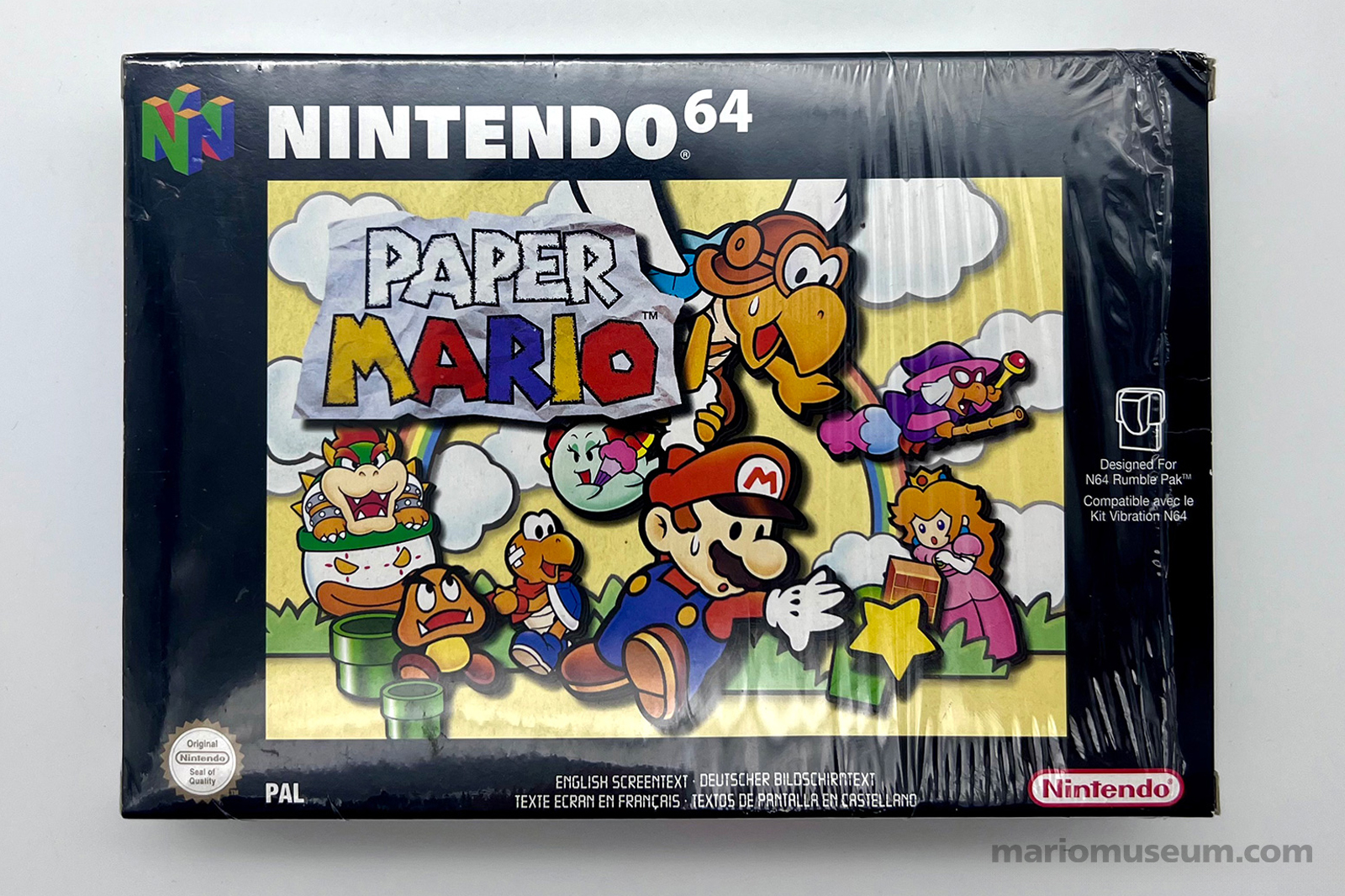Release (UK): 05/10/2001
NUS-NMQP-EUR
Release (USA): 05/02/2001
NUS-NMQE-USA
Release (Jap): 11/08/2000
NUS-NMQJ-JPN
Genre: RPG
Developer: Intelligent Systems Co., Ltd.
Publisher: Nintendo Co., Ltd.


A groundbreaking RPG
Paper Mario (マリオストーリー), released in the UK on 5th October 2001, was a revolutionary title for the Nintendo 64, blending traditional RPG elements with the unique visual style of paper-based graphics. Known as Mario Story in Japan, this RPG offered a fresh take on the Mario franchise, departing from the usual platforming gameplay. Developed by Intelligent Systems and published by Nintendo, it introduced players to a charming world where the characters and environments appeared as if they were made from paper, creating a visually stunning and memorable experience.
Engaging turn-based combat
The game featured turn-based combat, a departure from the action-oriented gameplay typical of Mario titles. Players controlled Mario as he journeyed through a paper-like world to rescue Princess Peach from Bowser’s clutches, engaging in battles with various enemies and solving puzzles along the way. The quirky paper theme extended to the gameplay mechanics, with Mario able to fold, flip, and transform in creative ways to navigate obstacles and overcome challenges. This clever integration of visual style and gameplay mechanics set Paper Mario apart from other RPGs of its time.
A beloved classic
Although Paper Mario was initially released in Japan in 2000, the UK and European release in 2001 solidified its place as a beloved entry in the Mario series. The game’s charm, humour, and depth were praised by critics and players alike, with its innovative mechanics and story earning it a strong fanbase. Paper Mario remains a fan-favourite, appreciated for its originality and lasting impact on the RPG genre, making it one of the most cherished titles on the Nintendo 64.
See the whole series:
- Paper Mario (2000)
- Paper Mario: The Thousand-Year Door (2004)
- Super Paper Mario (2007)
- Paper Mario: Sticker Star (2012)
- Paper Mario: Color Splash (2016)
- Paper Mario: The Origami King (2020)
- Paper Mario: The Thousand-Year Door (Switch) (2024)
(Indicates year of first release. Dates may differ between regions.)

